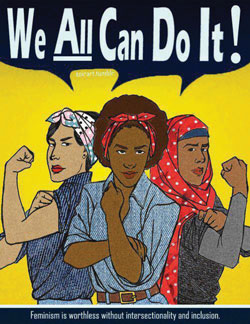Life has that funny way of throwing things at you when you least expect them. From the positives of a new-found love to a highend job promotion, to the contrasting negatives of a car accident or a sudden death, all are surprises that capture individuals day by day.
What happens, though, when that very surprise isn’t much of a surprise at all and you see it looming overhead far before it decides to strike? Or better yet what if that sudden curveball is one that sticks with you, refusing to leave no matter how hard you will it to?
For more and more people in this age that very thing is occurring, grasping them in a suffocating clutch and affecting more than merely them, but those around them as well. The name of their unforeseen marvel? Divorce.
At this point, everyone has heard the stories; how divorce rates are higher than ever and about how half of the marriages who complete the glitzy, happy ever-after wedding ceremony will end in a court room. It’s not an ideal position to be in, it isn’t grand, and it most certainly is not something worth exploiting for personal gainthough as some television dramas will tell you is a foolish claim, get rich quick and all that.
However, as much as we know about the sad reality of the escalating rates in marriage separations, we as a society have become desensitized to them entirely, something that sophomore Victoria Hammil notes from personal experience.
“My parents told my sister, brother, and I they were going to get a divorce about two years ago. I could hardly believe it and I was devastated. When I told my friends, they couldn’t really believe it either but they accepted it as a kind of ‘it is what it is’ kind of thing. I just kept on thinking about how it didn’t really make sense. Celebrities and people who don’t value what they have get divorces; they are the ones that quit,” notes Hammil.
With the numbed reactions to this perpetuating issue now being seen as customary, several are left wondering what the actual affects might be, not in a financial sense or how it might register with the parents, but with the impact upon the children.
As reported by Robert Hughes Jr. in a 2011 article in the Huffington Post h e n otes t hat t he m ajor fi nding that demands the most attention is that the children of divorced spouses had a slightly higher likelihood of participating in the very same action, or a separation of sorts. Within the article, Hughes looks into a particular study conducted in 2011 by scientists at the National Institute for Health and Welfare and the University of Helsinki, in which they took a look at the long-term effects of divorce on intimate relationships.
At the conclusion of the investigation, the findings seemed to keep with previous research, finding that a child with separated parents were somewhat more likely to be divorced in young adulthood. Interestingly enough though, young women whose parents separated were also less likely to be married in the first place, where in contrast the parents’ separation had no relationship in predicting outcomes for young men.
Hughes discerns that such a finding means that one of the keys to fostering long-term wellbeing of children of divorce lies in strengthening the positive parent-child relationships; and for this study in particular, a positive parent-child relationship was more essential for women than men.
“The mere finding that these children may be more at-risk of difficulties should no longer occupy so much of our attention. The important work is understanding the factors within relationships and family process that contribute to these outcomes and identifying opportunities to buffer the negative effects while building on the positive factors,” Hughes contests.
Dr. Dinella, a psychology professor here at the university, adds to Hughes conclusion by mentioning a rather interesting set of statistics, primarily about the impact of divorce on young women. “In 1995 about half of women’s first marriages would end in divorce by the end of 20 years. The probability of women’s marriages staying intact for at least 20 years has hovered at the 50/50 rate steadily since 1995, as have the probability rates of men’s marriages staying intact past 10 years. About 2/3 do remain intact at the end of 10 years–rates for at the end of 20 years were not available,” says Dinella. She goes on to mention how certain factors, such as race, education, and cohabitation, could very well impact the figures presented.
But as freshman Kimberly Mueller points out, perhaps it is more than the divorce, and is instead how the child or person affected chooses to react to the situation.. Mueller, whose parents separated in 2008, mentions that even though her parents decided to make that decision in regards to their relationship, does not mean that she should be expected to do the same.
“I understand why people might assume a child of divorced parents would go through the same process. I mean children usually, or are supposed to anyway, follow the example of their parents and guardians. So when a divorce occurs in the family, then a child would most likely follow suit. In my case, however, and in many other divorce cases of people I know and friends of mine, it is because of my parents’ divorce that has almost motivated me to not get a divorce, when I finally do get married that is,” Mueller says.
She goes on to state that she has been in a solid relationship for about two years now and things are still going strong. “I know that a break up would not be as big as a divorce but I think people need to lose this stigma that kids who have seen a divorce happen close to them in their family are going to have relationship problems. For some people I am sure that is an actual problem they might face, but for the majority, myself included, we are all in good relationships and are doing just fine. It’s all about how you chose to deal with the issue at hand,” Mueller contends.
So statistical evidence suggesting a dimmer outcome, or a gleaming ray of hope in Mueller’s belief? It all can be said that children one way or another will be impacted. However, whether it be the latter or the former is all up for debate. And although American society seems to be acquainted with the idea of separation, perhaps it is time to divorce the acceptance of such an idea and save ourselves, and our children, all of the trouble involved.
IMAGE TAKEN from colo-divorce.com




